'Someone will die': Olympic legend sounds harsh warning if Enhanced Games go ahead
Olympic swimming legend and Australian Sports Commission boss Kieren Perkins has warned that "someone will die" if a multi-sport event that allows athletes to…
Opinion
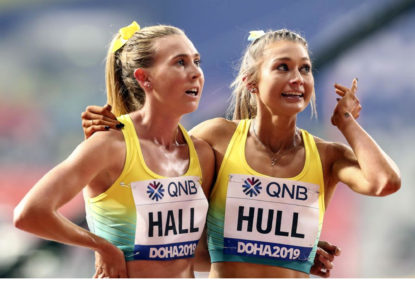
Given how competitive track is, with athletes from both the developing and developed nations vying for medals and income generated from competitions and sponsorship, today it is even more difficult for Australians to win global medals of any colour.
Since Cathy Freeman won her gold medal in the 400 metres at the 2000 Olympic Games, our only global track event champions have been Sally Pearson in the 100 metres hurdles (2011, 2012 and 2017), and Jana Pittman 400m hurdles (2003 and 2007)
The only other medals won were silvers by Pearson in the 100 metres hurdles (2008 and 2013), and a bronze medal by Craig Mottram in the 5000 metres (2005).
Running is a basic sport that does not require expensive training facilities or equipment like cycling, swimming or rowing, so it is extremely hard to win a medal against such global competition.
Nevertheless, as a track fan, I still look forward to our best athletes competing overseas, including in the Olympic Games and Diamond League circuit when Australians get the occasional run to compete against the best in the world.
So what events are Australia’s best runners likely to do well in should the Olympic Game and Diamond League go ahead this year?
And how have our best runners fared since 2018 in comparison with Australia’s all-time best performances?
I look at Australian performances from 1 January 2018 to 12 May 2021 to answer this question in terms of world performance lists.
100 metres
Australia’s Rohan Browning has the 74th fastest global performance with 10.05 (run at Brisbane, 27 March 2021). Recent Australian 100 metres sprinters since 2018 have achieved four of the top ten fastest all-time Australian rankings of three, five, six, and eight (Browning, Trae Williams, Jack Hale and Jake Doran).
Of Australia’s female sprinters, Hana Basic has the 96th fastest world time running 11.18 (Brisbane, 27 March 2021), the fourth fastest ever time by an Australian.
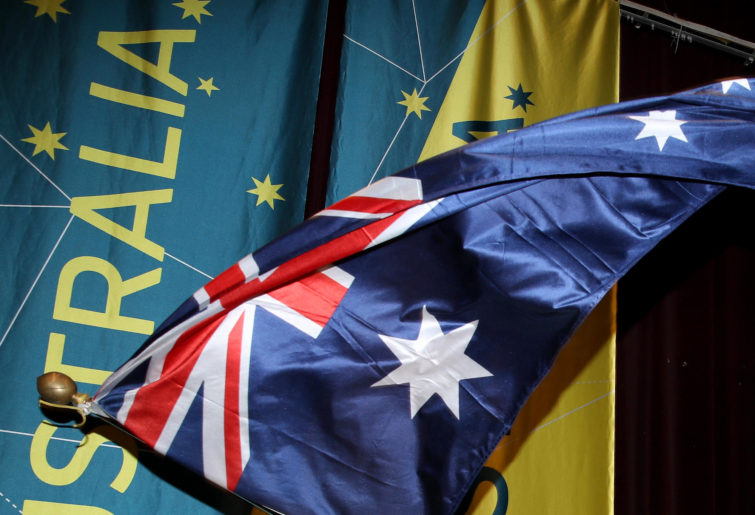
(Cameron Spencer/Getty Images)
200 metres
Australia’s best male performer is Alex Hartmann, who is ranked 242nd with 20.57 (Gold Coast, 18 February 2018). His 2016 best of 20.45 ranks tenth on the Australian all-time list.
Our best female Riley Day is ranked 82nd at the global level with 22.77 (Sydney, 13 March 2021), the ninth fastest ever by an Australian.
400 metres
Steve Solomon is ranked 95th with 45.30 (Eugene, Oregon, 6 June 2018). His best of 44.97 at the 2012 London Games ranks him the eighth fastest ever Australian.
Bendere Oboya is the 56th fastest female in the world with 51.21 (Doha, 30 September 2019), making her the seventh fastest Australian female ever.
800 metres
Joseph Deng running an Australian record 1:44.21 (Monaco, 20 July 2018) represents the 22nd fastest world time since 2018, while Peter Bol’s 1:44.56 (Stockholm, 10 June 2018) is 31st fastest to rank fifth on the Australian all-time list.
Of Australia’s females, Catriona Bisset has the 23rd fastest world time running 1:58.78 (London, 21 July 2019), and Linden Hall is 32nd with a time of 1:59.22 (Brisbane, 27 March 2021), ranking them first and third in terms of fastest ever Australians.
1500 metres
The men’s 1500 metres is the only event where Australia has three of the world’s top 50 performances since 2018 to this time.
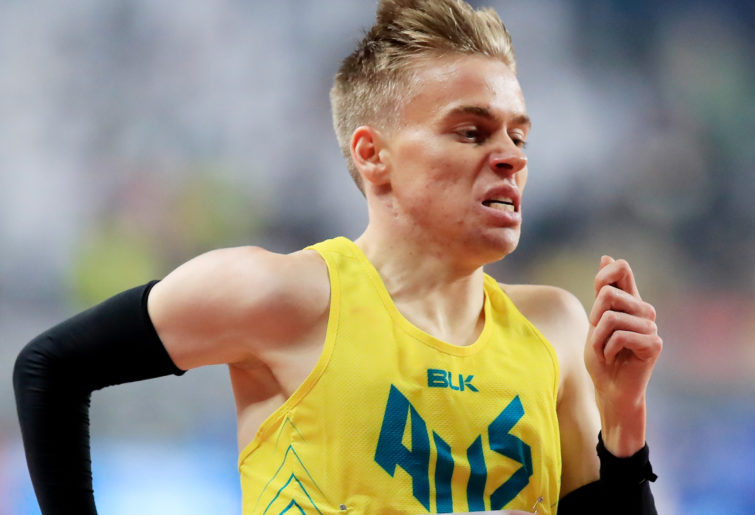
Stewart McSweyn (Photo by Andy Lyons/Getty Images for IAAF)
They are the sixth-ranked Stewart McSweyn with his Australian record 3:30.51 (Doha, 25 September 2020), the 29th-ranked Oliver Hoare with 3:33.19 (Walnut, California, 9 May 2021), and the 38th-ranked Jye Edwards with 3:33.99 (Sydney, 18 April 2021). These three performances rank first, fifth and ninth on the all-time Australian list.
Of Australia’s females, Linden Hall has the world’s 16th fastest time with 3:59.67 (Box Hill, 1 April 2021), and Jessica Hull is 22nd fastest with 4:00.42 (Berlin, 13 September 2020), the fastest and second fastest Australian females of all time.
5000 metres
Stewart McSweyn is 29th fastest in the world with 13:05.23 (Brussels, 31 August 2018).
While McSweyn’s time is also the second fastest ever by an Australian, in other post-2018 times, Patrick Tiernan ranks as the fifth fastest Australian ever with 13:12.68 (London, 20 July 2019), Brett Robinson ranks eighth with 13:15.91 (Belgium, 21 July 2018), and Matthew Ramsden ranks tenth with 13:16.63 (Göteborg, Sweden, 29 August 2020).
Of Australia’s females, Jessica Hull has the 20th fastest time in the world with 14:43.80 (Monaco, 14 August 2020), which is an Australian record.
Australia also achieved its fifth and ninth fastest ever times through Madeleine Hills with 15:06.19 (Belgium, 21 July 2018), and Isobel Batt-Doyle with 15:11.07 (Box Hill, 2 March 2021).
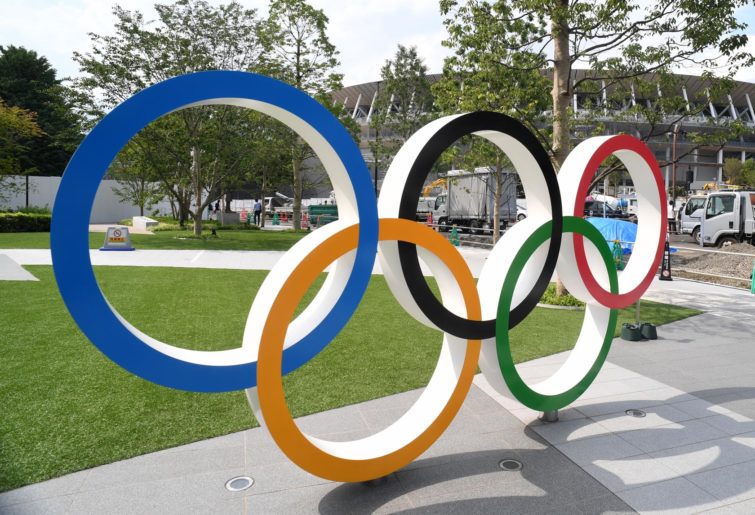
(Photo by Etsuo Hara/Getty Images)
10,000 metres
Patrick Tiernan is ranked 31st fastest with an Australian record 27:22.55 (California, 5 December 2020), and McSweyn is 36th with 27:23.80 (Melbourne, 14 December 2019) with both performances ranking first and second on the all-time Australian list.
Of the females, no Australians were amongst the 50 fastest world times, but four Australian performances since 2018 are now ranked four, five, seven and ten on Australia’s all-time list (Ellie Pashley, Sinead Diver, Rose Davies and Isobel Batt-Doyle).
Marathon
Currently Australia’s worst male event, Liam Adams ranked 503rd in the world with 2:10:48 (Otsu, Japan, 8 March 2020), but 11th on the Australian all-time list.
Of the females, Sinead Diver has the 103rd fastest time in the world, but ranks third fastest ever Australian with 2:24:11 (London, 28 April 2019), while three other Australian times since 2018 also rank six, eight and nine on the all-time Australian list (Jessica Trengove, Ellie Pashley and Milly Clark).
110 metres hurdles
Australia has the 45th fastest world time of 13.38 by Nicholas Hough (Gold Coast, 10 April 2018), the second fastest Australian of all time.
Also ranked sixth on Australia’s all-time list is Nicholas Andrews with 13.59 (Brisbane, 27 March 2021).
100 metres hurdles
With the 25th-ranked Sally Pearson now retired, Australia has the 33rd fastest world time of 12.72 through Elizabeth Clay (Canberra, 13 February 2021), now ranked the second fastest ever Australian.
Other Australian females doing well since 2018 to make the Australian all-time list at five, six, seven and ten are Hannah Jones, Celeste Mucci, Brianna Beahan and Abbie Taddeo.
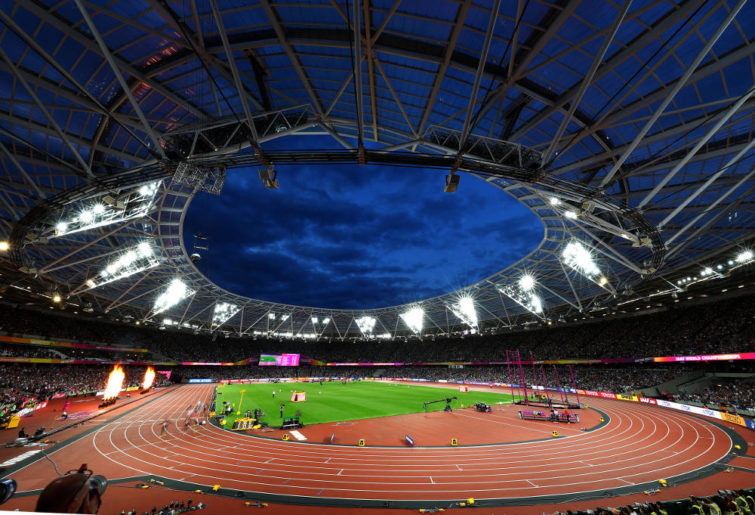
(Photo by Michael Steele/Getty Images)
400 metres hurdles
Chris Douglas has the 100th fastest world time with 49.50 (Sydney, 18 April 2021), and is now ranked the tenth fastest all-time Australian.
Of the females, Lauren Wells is 20th fastest in the world with 54.87 (Sydney, 7 April 2019), and Sarah Carli is 30th with 55.09 (Sydney, 19 December 2020) to now be the fourth and fifth fastest ever Australians.
Sara Klein has also become the ninth fastest ever Australian with 56.07 (Townsville).
3000 metres steeplechase
Ben Buckingham is ranked 96th in the world with 8:27.38 (Brisbane, 27 March 2021), the ninth fastest all-time Australian.
Of the females, Genevieve Lacaze is 25th fastest in the world with 9:23.69 (Berlin, 2 September 2018), behind her Australian record of 9:14.28 (Paris, 27 August 2016).
Other Australians since 2018 making the top ten all-time Australian list to rank six, seven, eight, nine and ten are Rosie Donegan, Georgia Winkcup, Cara Feain-Ryan, Paige Campbell and Brielle Erbacher.
To summarise, while Australia has produced many athletes since 2018 to make the Australian all-time top ten list (over 50) – which is quite an achievement – Australia has just 18 top 50 world list performers for the 22 running events (11 male and 11 female) during the same period.
It will be interesting to see how our best Australian runners perform at the global level in 2021 with the Diamond League season beginning on May 23.
Given that countries can only have three competitors in each event for the Olympics, it is quite possible that a few Australians can make several finals even though Australia currently has only one top-ten runner based on times since 2018 (Stewart McSweyn, 1500 metres).
A few Olympic finalists in this extremely competitive, global, individual sport would still be quite an achievement.